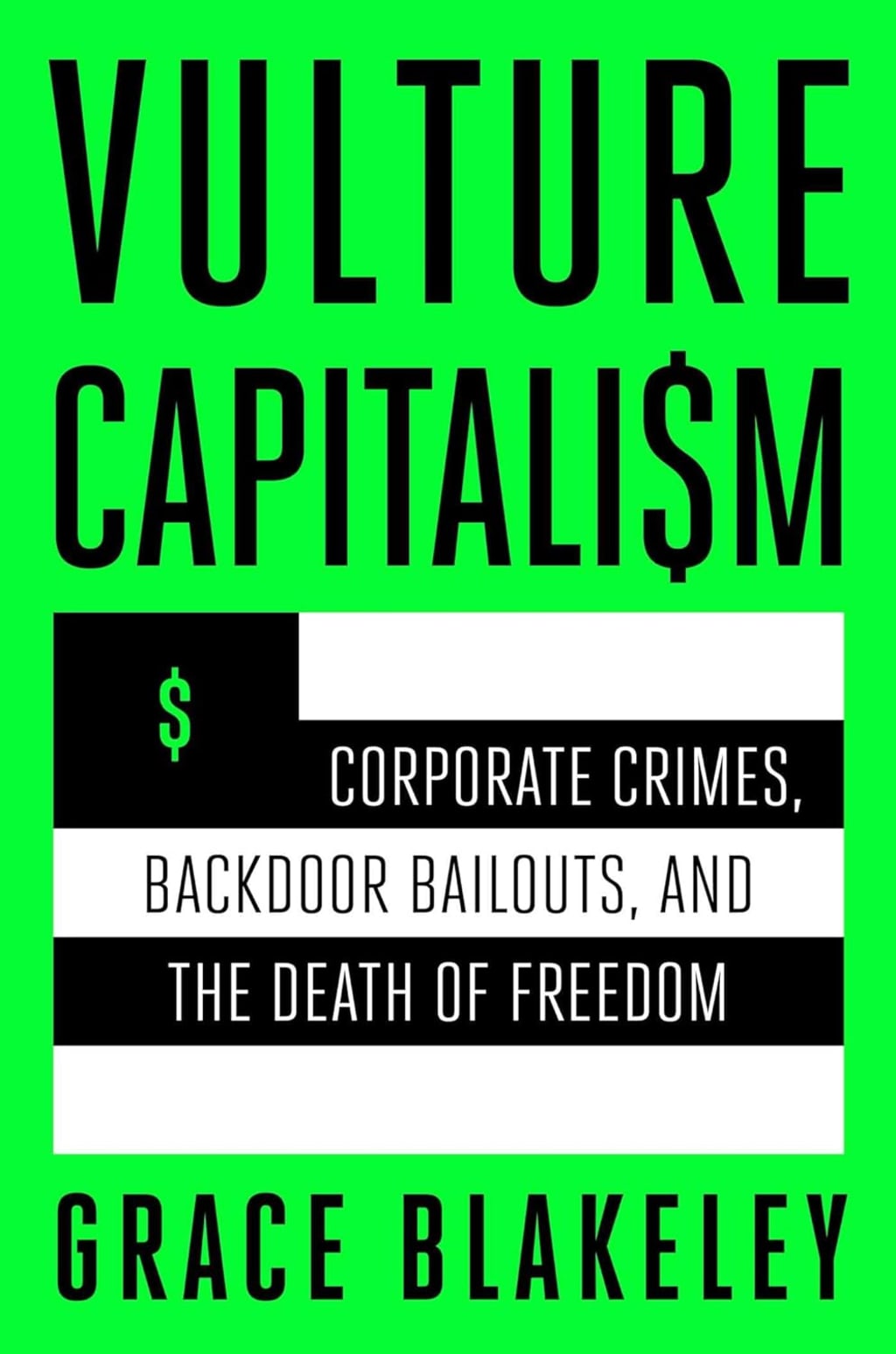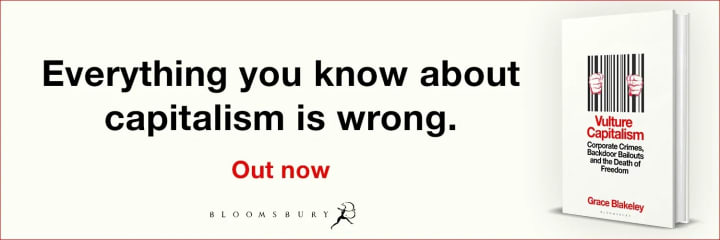Book Review: "Vulture Capitalism" by Grace Blakeley
3/5 - has some great points, but there are setbacks...

Full Title: Vulture Capitalism: Corporate Crimes, Backdoor Bailouts, and the Death of Freedom
Now, I am not saying that I am an academic in the field of economics, but I really awe-struck about how popular the book Vulture Capitalism has become amongst the nonfiction reading communities. Especially amongst those of us who's most nonfiction read for the past three or four years has been Shantaram and nobody even knows how much of that is true or not. When it comes to Vulture Capitalism though, I think the reason that it became famous was because of the disdain for capitalism that is constantly seen lurking within the clubs and subsections of each and every crevice of the reading societies of the internet. When I started reading it myself I noticed I knew what nothing really meant in the economic world. That's where the dictionary and Google come in.
Now because this book was more of a mixed bag than I thought it would be, let's start with the good points and move on into the things that probably needed more thinking.

The first really interesting thing about this book is not only did the writer give examples of the state funding capitalism and then convincing everyone that capitalism is a free market, but she goes through it with a fine tooth comb, showing us every single crevice there is. For example: we have the situation with the Boeing Planes which could not be more of a hot topic at the moment, but taken back to the Trump Administration there are some clearly shady dealings between the government and the plane company that have come to pass as probably not in the best interests of the customers that are going to use Boeing.
The next very interesting point is when she goes through the history of the Ford Motor Company and how it came to shape the way the state has stakes in capitalism. For example: the American public are fed the story of Ford becoming a company from nothing in a world of free market capitalism and yet, that is not really the case at all. Instead, the company covering so much common ground with the US military that it even makes weapons and tanks for the opposing side of the war - the Germans. What then happens there is they rake in all the money and can now make demands upon workers rights, for example: forced labour of 12 hours days with only a 15 minute break and 2 small meals during the war era. Practical for the company? yes. Practical for workers? absolutely not. Even into our own modern day, Ford still has some sort of stranglehold on the way the state controls capital. It still has that kind of reputation and honestly, it is sickening that the people are lied to like this.

One of the things I did not quite understand when it came to this book was the marketing behind it. If you follow any nonfiction literature pages on your social media or you keep up with the world of literature in any way online then you have probably seen this book over and over again. There is quite a large marketing campaign behind it and yet, when I took myself over to take a look at some reviews of what others have said whilst writing my own, I found that there were barely any. I have spoken to others who have seen this marketing campaign and many don't express interest in reading the book. What happened?
I'll tell you what happened. The book is overloaded with jargon which seeks to explain itself albeit not very well. I think the writer is more into getting the story out than making the book acessible to the masses. The problem arises is that you cut out the vast majority of what could have been your audience. People who do not understand masses of terminology related to the academic study of economics are not going to understand this book and therefore, probably won't care. If these terms are cut down by 50% or even explained in the same style that many nonfiction books do, there could be an increase in the uptake of the book. I think that this author has done something wrong in writing a book that has alienated a lot of nonfiction readers purely for the reason that it reads rather pretentiously.
All in all, I found this book to start off really well and grow tedious as time went on because of all the random terminology that is present and the movement of ideas. One idea moving to the next over and over again without really fully fleshing out what's going on. Chapters 1-7 are actually pretty good, its everything after that which can bore the regular nonfiction reader to death.
About the Creator
Annie Kapur
200K+ Reads on Vocal.
English Lecturer
🎓Literature & Writing (B.A)
🎓Film & Writing (M.A)
🎓Secondary English Education (PgDipEd) (QTS)
📍Birmingham, UK






Comments
There are no comments for this story
Be the first to respond and start the conversation.